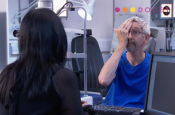Keyword search: 176 records shown
| Course categorySort by Course category Ascending | Course nameSort by Course name Ascending Ascending | Course summarySort by Course summary Ascending | New CourseSort by New Course Ascending |
|---|---|---|---|
| Video library | Acute Presentation: Part 1 |
This course provides optometrists with information on managing patients presenting with acute onset symptoms in two key areas: sudden loss of vision and the painful red eye. It covers the presentation of each condition, what to look for during examination, differential diagnosis, referral steps, further clinical management and any red flag symptoms requiring immediate referral. Topics: Ischaemic, Optic neuropathy, Retinal artery occlusion, Retinal vein occlusion, Haemorrhage, Ameurosis fugax, Posterior eye, Referral, Treatment, Acute, Anterior uveitis, Glaucoma, Keratitis, CLARE, Contact lenses, Scleritis, Trauma, Cellulitis, Referral, Anterior eye, Ocular disease. Areas of interest: MECS, Anterior eye conditions and acute presentations, Newly qualified, Acute presentation series. | No |
| Video library | Acute Presentation: Part 2 |
Topics: Papilloedema, Optic neuritis, Pupils, Visual fields, Palsy, Nerve, Diplopia, Acute, Treatment, Referral, Retinal detachment, Giant cell arteritis, Trauma, Ischaemic, TIA. Area of interest: MECS, Anterior eye conditions and acute presentations, Newly qualified, Acute presentation series. | No |
| Video library | Acute Red Eye in Contact Lens Wearers (October 2019 Webinar) | 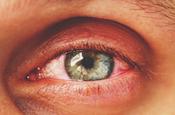 No CPD Points Domains: Clinical practice, Professionalism
This lecture, by consultant ophthalmologist Damian Lake, covers different acute red eye conditions particularly in contact lens wearers. It discusses the management of both those that can be treated in practice, and others, such as infective causes, where urgent referral to the Hospital Eye Service is required. Topics: Contact lenses, Ulcers, Microbial keratitis, Ocular allergy, Viral, Bacterial, Fungal, Allergic, Infiltrate, Hygiene, Infection, Acanthamoeba, Abrasion. | No |
| Expired | Anterior Eye: Conjunctival disorders (Non-interactive) | This course expired on 30 September 2025. If you have completed this course, you can print your certificate here. This course has been replaced with our Anterior Eye: Part 2 - Conjunctival disorders course, reissued in October 2025. | No |
| Expired | Anterior Eye: Eyelid disorders (Non-interactive) | This course expired on 30 September 2025. If you have completed this course, you can print your certificate here. This course has been replaced with our Anterior Eye: Part 1 - Eyelid disorders course, reissued in October 2025. | No |
| CPD courses | Anterior Eye: Part 1 - Eyelid disorders (Non-interactive) (Updated 2025) |
CPD Points: CPD Type: Non-interactive Closing Date: 31 December 2026 Domains: Clinical practice, Communication, Specialty CPD (IP)
Docet has created a comprehensive online resource to support optometrists and IP practitioners in the diagnosis and management of patients presenting with chronic or non-sight threatening anterior eye conditions. The first part focuses on eyelid conditions including blepharitis and meibomian gland dysfunction (MGD). Topics: Referrals, Grading scales, Slit-lamp, Pharmacy, GP, Blepharitis, Hordeolum, Chalazion, Meibomian gland dysfunction, Molluscum contagiosum, Ectropion, Entropion, Dry eye. Areas of interest: MECS, Anterior eye conditions and acute presentations, Independent Prescribing, Newly qualified, CUES. | No |
| CPD courses | Anterior Eye: Part 2 - Conjunctival disorders (Non-interactive) (Updated 2025) |
CPD Points: CPD Type: Non-interactive Closing Date: 31 December 2026 Domains: Clinical practice, Communication, Specialty CPD (IP)
Docet has created a comprehensive online resource to support optometrists and IP practitioners in the diagnosis and management of patients presenting with chronic or non-sight-threatening anterior eye conditions. The second part of the anterior eye course focuses on conjunctival conditions, including infective conjunctivitis. Topics: Referrals, Grading scales, Slit-lamp, Pharmacy, GP, Conjunctivitis, Allergy, Viral, Pinguecula, Pterygium, Bacterial, Infective, Haemorrhage. Areas of interest: MECS, Anterior eye conditions and acute presentations, Independent Prescribing, Newly-qualified, CUES. | No |
| CPD courses | Anterior Eye: Part 3 - Various disorders (Non-interactive) (Updated 2025) |
CPD Points: CPD Type: Non-interactive Closing Date: 31 December 2026 Domains: Clinical practice, Communication, Specialty CPD (IP)
Docet has created a comprehensive online resource to support optometrists and IP practitioners in the diagnosis and management of patients presenting with chronic or non-sight-threatening anterior eye conditions. This is the third and final course on the anterior eye and covers conditions such as episcleritis, dry eye and corneal abrasions. Topics: Referrals, Grading scales, Slit-lamp, Pharmacy, GP, Dry eye, Episcleritis, Corneal abrasions, Recurrent corneal erosions, Foreign bodies. Areas of interest: MECS, Anterior eye conditions and acute presentations, Independent Prescribing, Newly qualified, CUES. | No |
| Expired | Anterior Eye: Various disorders (Non-interactive) | This course expired on 30 September 2025. If you have completed this course, you can print your certificate here. This course has been replaced with our Anterior Eye: Part 3 - Various disorders course, reissued in October 2025. | No |
| CPD courses | Assessing children with special educational needs (January 2024 Webinar) |  CPD Ref: C-107759 CPD Points: CPD Type: Non-interactive Closing Date: 31 March 2026 Domains: Clinical practice, Communication
This recorded lecture aims to build the confidence of community optometrists when examining children with special educational needs (SEN). Professor Rachel Pilling provides guidance on adapting your communication and testing approaches to better accommodate children with special needs. Common ocular issues seen in SEN children are addressed, as are the ways in which optometrists can assist both the children and their parents in optimising vision. Recognising when referral is required is also explored. Topics: Special educational needs, SEN, ASD, ADHD, Cerebral visual impairment, CVI, Atypical visual behaviour, Communication, Retinoscopy, Visual assessment, Refraction, GOS, Dry eye, Referral. | No |
| Video library | Binocular Vision |
No CPD Points Domains: Clinical practice, Communication
Binocular Vision provides a step-by-step practical guide to the various techniques required in practice to assess the binocular status of patients. The course also explores the appropriate management for a broad range of anomalies. Topics: Children, Orthoptics, Amblyopia, Strabismus, Squint, Incommitent, Commitent, Exercises, Motility, Heterophoria, Stereopsis, Prisms, Newly qualified. Area of interest: MECS | No |
| Expired | Binocular Vision: Beyond the prism (November 2021 Webinar) | This course expired on 30 September 2025. If you have completed this course, you can print your certificate here. This course has been replaced with our Binocular Vision: Beyond the prism course, reissued in October 2025. | No |
| CPD courses | Binocular Vision: Beyond the prism (November 2021 Webinar) (Updated 2025) | 
CPD Points: CPD Type: Non-interactive Closing Date: 31 December 2026 Domains: Communication, Clinical practice
This recorded lecture by Dr Aleksandra Mankowska explores four case studies involving patients with binocular vision problems. Each case includes a discussion of presenting symptoms, appropriate clinical assessments and management strategies, offering optometrists practical insights into the diagnosis and treatment of common binocular vision issues. Topics: Paediatric, Multiple sclerosis, Convergence insufficiency, Esophoria, Exophoria, Prism, Fusional reserves, Stereopsis, Cycloplegic, Tropia, Microtropia, Convergence weakness, Refraction, Amblyopia, Nystagmus. | No |
| Expired | Cataract: Part 1 - Introduction (Non-interactive) | This course expired on 31 December 2025. If you have completed this course, you can print your certificate here. This course has been replaced with our Cataract: Part 1 - Introduction course, issued in January 2026. | No |
| CPD courses | Cataract: Part 1 - Introduction (Non-interactive) (Updated 2026) |
CPD Ref: C-114599 CPD Points: CPD Type: Non-interactive Closing Date: 31 December 2026 Domains: Clinical practice, Communication
The first part in this series on cataract explores the definition and classification of cataract, its pathophysiology, risk factors and incidence, as well as practical guidance on patient assessment and referral criteria. Topics: Cataract, Cataract series, Classification, Pathophysiology, Risk factors, History and symptoms, Visual assessment, Contrast sensitivity, Referral, Nuclear, PSC, Cortical, Congenital, NICE. | Yes |
| Expired | Cataract: Part 2 - Management and treatment (Non-interactive) | This course expired on 31 December 2025. If you have completed this course, you can print your certificate here. This course has been replaced with our Cataract: Part 2 - Management and treatment course, reissued in January 2026. | No |
| CPD courses | Cataract: Part 2 - Management and treatment (Non-interactive) (Updated 2026) |
CPD Ref: C-114601 CPD Points: CPD Type: Non-interactive Closing Date: 31 December 2026 Domains: Clinical practice, Communication
The second part in this series on cataract explores the principles of cataract management and treatment, along with key surgical techniques. Topics: Cataract, Cataract series, Management, Intra-ocular lenses, Phacoemulsification, Surgery, IOL, Multifocal, Bifocal, Trifocal, Referral, Monovision, Accommodating, Cataract extraction, EDOF. | Yes |
| Expired | Cataract: Part 3 - Post-treatment (Non-interactive) | This course expired on 31 December 2025. If you have completed this course, you can print your certificate here. This course has been replaced with our Cataract: Part 3 - Post-treatment course, reissued in January 2026. | No |
| CPD courses | Cataract: Part 3 - Post-treatment (Non-interactive) (Updated 2026) |
CPD Ref: C-114656 CPD Points: CPD Type: Non-interactive Closing Date: 31 December 2026 Domains: Clinical practice, Communication, Specialty CPD (IP)
The third and final part of the cataract series addresses postoperative assessment, potential complications and their management and postoperative care pathways, including referrals. Topics: Cataract, Cataract series, Surgery, Postoperative assessment, Complications, Pathways, CMO, Uveitis, Retinal detachment, IOP, PCO, Referral, Emergency, IOL, Dislocation. | No |
| CPD courses | Common Corneal Conditions: What every optometrist needs to know! (October 2024 Webinar) | 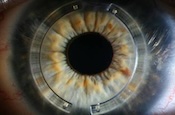 CPD Ref: C-110271 CPD Points: CPD Type: Non-interactive Closing Date: 31 March 2026 Domains: Clinical Practice, Communication
In this recorded lecture, Professor Sai Kolli, consultant ophthalmic surgeon, looks at corneal dystrophies that appear commonly in practice. He discusses which patients are appropriate for monitoring or management in the community, which need to be referred, and the impact of these conditions when referring patients for surgical treatment. Conditions such as keratoconus and Fuchs endothelial corneal dystrophy are also covered. Topics: Referrals, Keratoconus, Fuchs, Endothelium, Recurrent corneal erosion, Tomography, Topography, OCT, Astigmatism, Specular microscopy, Cross-linking, Graft. | No |
| Video library | Common Eyelid Lesions (September 2022 Webinar) |  No CPD Points Domains: Clinical practice
This recorded webinar, hosted by Consultant Ophthalmic Surgeon Raman Malhotra, will help optometrists to identify and manage commonly occurring suspicious eyelid conditions. It will cover both benign and malignant eyelid lesions as well as discuss the features, diagnosis, management and referral of the conditions by community optometrists. At the end of the webinar, Mr Malhotra answers questions raised during the lecture. Topics: Lids, Malignant, Benign, BCC, Carcinoma, Oncology, Meibomian, Tumour, Squamous cell, Melanoma, Chalazion, Molluscum, Naevus, Papilloma, Xanthelasma. | No |
| Video library | Communication Skills |
| No |
| Video library | Contact Lenses: Core Skills - Fitting and aftercare |
| No |
| Video library | Contact Lenses: Fitting Astigmatic Patients - RGP |
Domains: Clinical practice, Communication
The programme is split into two parts. The second part covers skills required to examine and fit astigmatic patients with rigid gas permeable (RGP) lenses, as well as the aftercare, management and problem-solving of those patients. Topics: Astigmatism, RGP lenses, Slit lamp, Toric, Aftercare, Bitoric, Complications, Gas permeable, Staining, Contact lenses. | No |
| Video library | Contact Lenses: Fitting Astigmatic Patients - Soft lenses |
Domains: Clinical practice, Communication
The programme is split into two parts. This first part covers the skills required to examine and fit astigmatic patients with soft contact lenses, including toric fitting tips and problem solving. Topics: Astigmatism, Soft lenses, Slit lamp, Toric, Aftercare, Keratometry, Contact lenses, Prism ballast, Stabilisation. | No |
| Expired | Contact Lenses: Fitting Children, Part 1 - Considerations for the optometrist, child and family (Non-interactive) | This course expired on 31 December 2025. If you have completed this course, you can print your certificate here. This course has been replaced with our Contact Lenses: Fitting Children, Part 1 course, reissued in January 2026. | No |
| CPD courses | Contact Lenses: Fitting Children, Part 1 - Considerations for the optometrist, child and family (Non-interactive) (Updated 2026) |
CPD Ref: C-114592 CPD Points: CPD Type: Non-interactive Closing Date: 31 December 2026 Domains: Clinical practice, Communication
In the first part of this two-part course, three children and their parents share their experiences with starting contact lens wear and managing it in daily life. We also hear from two optometrists about the process of fitting contact lenses in children and the benefits they can provide. Topics: Prevalence, Benefits and perceived barriers to contact lens wear in children, Quality of life, Microbial keratitis, Soft contact lenses, Rigid gas permeable lenses, Orthokeratology, Anisometropia, Amblyopia, Nystagmus, Myopia management, Seasonal allergic conjunctivitis, Contact lens handling. | No |
| CPD courses | Contact Lenses: Fitting Children, Part 2 - How to make the process a success (Non-interactive) |
CPD Ref: C-107674 CPD Points: CPD Type: Non-interactive Closing Date: 31 December 2026Domains: Clinical practice, Professionalism
In the second part of this two-part course, our experts discuss what you need to consider before fitting a child with contact lenses. They also give helpful advice on how to educate children and their parents about contact lenses and discuss the legal aspects to bear in mind when fitting contact lenses to younger patients. Topics: Contact lens compliance, Microbial keratitis, Communicating with children, Management of contact lens wear risks, Contact lens teach appointment, Legal considerations of fitting children with contact lenses. | No |
| CPD courses | Dementia and Optometry: Research and practice (November 2024 Webinar) |  CPD Ref: C-110444 CPD Points: CPD Type: Non-interactive Closing Date: 31 March 2026 Domains: Clinical Practice, Communication
In this recorded lecture, Dr Rakhee Shah presents the latest research on dementia and its implications for optometry. Mr Simon Raw provides clinical insights on tailoring eye examinations to meet the needs of patients with dementia, along with strategies to ensure they feel safe and comfortable. Topics: Mental Capacity Act 2005, Falls, Visual assessment and examination, Referral, Communication, History and symptoms, Dispensing, Dementia. | No |
| Case studies for peer review | Dentist - lifestyle and dispensing considerations |
Rahul Navamani is a 41-year-old dentist who requires advice for his work and sport. This case discusses various lifestyle requirements and dispensing considerations. Topics: Dispensing, Occupational, Lifestyle, Sports, Lenses, Eye protection, Injuries, Record keeping, Frames, Vocational, UV. | No |
| Video library | Developing Clinical Skills | No CPD Points
This programme looks at the application of three advanced clinical investigative techniques and shows how to undertake and interpret van Herick technique, the use of slit lamp and indirect lenses for assessment of the fundus and gonioscopy. Topics: Tonometry, Slit lamp, Gonioscopy, Volk, BIO, van Herick, IOP, Anaesthetic, Dilation, Goldmann, Glaucoma. Area of interest: MECS | No |
| Peer review | Docet Peer Review Facilitator Training and Guidance |
Free video training and other useful tips, advice and guidance for those who wish to facilitate peer review sessions. Topics: Facilitator, Peer discussion, Peer review. | No |
| Case studies for peer review | Domiciliary Visit |
In this case, delegates are asked to watch a short video about a domiciliary visit with a 71-year-old female patient who has dementia. Topics: Dementia, Refraction, Legal, Safeguarding, Vulnerable, Communication, Equipment, Visual assessment, Consent, Confidentiality, Lighting, Dispensing. | No |
| Case studies for peer review | Driving |
This case discusses an 89-year-old diabetic patient whose vision is below the driving standard. As his optometrist, you have witnessed him driving on several occasions and are unsure about what course of action you should take. Topics: Diabetic, Standards, Legal, Confidentiality, DVLA, Referral, Anxiety, Record keeping, Ageing. | No |
| Case studies for peer review | Early Dementia |
This case discusses the examination of an 85-year-old patient with early dementia and cataracts, who possibly needs referring. Topics: Ageing, Cataracts, Referral, Legal, Confidentiality, Consent, Communication, Vulnerable adults, Safeguarding, Record keeping, Visual assessment. | No |
| Video library | Effective Remote Patient Consultations (June 2020 Webinar) |  No CPD Points Domains: Communication, Leadership & Accountability
This filmed lecture, which initially took place as a webinar during the Covid 19 pandemic, will increase your confidence in examining patients remotely, ensuring they are managed safely and referred when required. Topics: Red eye, Record keeping, Triage, Referral, Acute presentation, Ocular disease, Reduced vision, Virtual. | No |
| Case studies for peer review | Examination of an Elderly Patient |
In this case, delegates are asked to watch a short video and discuss the actions of an optometrist who examines an elderly patient with early dementia. Topics: Dementia, Refraction, Legal, Safeguarding, Vulnerable adults, Communication, Confidentiality, Visual assessment, Consent, Ageing, Referral. | No |
| Video library | Flashes and Floaters |
| No |
| Case studies for peer review | Flashes and Floaters: Four cases |
No CPD Points
This peer review features four patient cases with specific symptoms that require interpretation, presented through short film clips and patient record cards. Topics: Peer discussion, Peer review, Flashes and floaters, Record keeping, Emergency, Referrals, Dilation, Retinal detachment. | No |
| Expired | Glaucoma - The optic disc challenge (June 2023 Webinar) | This course expired on 31 December 2025. If you have completed this course, you can print your certificate here. This course has been replaced with our Glaucoma - The optic disc challenge course, reissued in January 2026. | No |
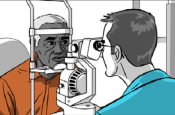 No CPD Points
No CPD Points No CPD Points
No CPD Points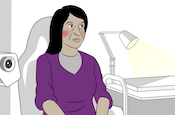 CPD Ref: C-
CPD Ref: C-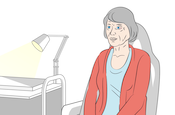 CPD Ref: C-
CPD Ref: C-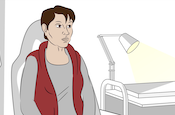 CPD Ref: C-
CPD Ref: C-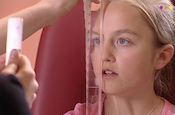
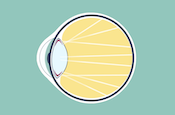
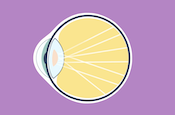
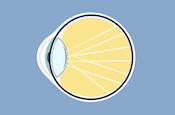
 No CPD Points
No CPD Points No CPD Points
No CPD Points No CPD Points
No CPD Points No CPD Points
No CPD Points

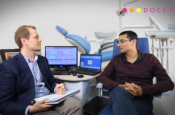
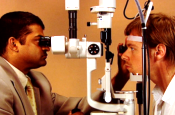





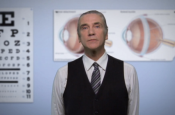 No CPD Points
No CPD Points